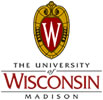Webinar on New Features of Nvivo 9 February 15
We have arranged for QSR International to do a web demonstration of the new features of NVivo 9 on February 15 at 1:30. You must register for this free event in order to get your web invite.
SSCC's Spring Training Schedule
In addition to the Nvivo 9 webinar above, we have several training opportunities this month: Stata Programming, four SAS workshops, Introduction to Wordpress, two Linux workshops, Office 2010, and a new offering called Use Your Mac like a Pro. In this one hour session we will demonstrate some of the really cool features available on Macs. We also just added an Intro to R Programming session to be taught in March. These sessions and more are listed on SSCC's training web pages. Remember that all SSCC training sessions require preregistration.
University Policy Regarding Encryption of Sensitive Data
Below is a copy of a message sent by DISC Director, Jack Solock, to members of the Center for Demography that we think will be of interest to other SSCC members using sensitive data for their research.
University of Wisconsin-Madison policy specifies that restricted/sensitive data that is located on a laptop or desktop computer at the University MUST be encrypted (except for specified exceptions).
Any researchers who are working with IRB/RSP approved restricted data contracts who store data on their desktop or laptop computers must encrypt their data. If you are working on restricted data that has been put on a restricted Linux or Windows network drive, and your contract specifies that your output goes to that network drive, you do not need to encrypt your data. If you are working on restricted data on a removable hard drive in one of the SSCC cold rooms (Rm. 2403 or 2404 Social Science), you do not need to encrypt your data.
The University policy also discusses "sensitive" information kept on laptop or desktop computers. Visit SSCC's Resources for Working with Sensitive Data web page for links to University policies on sensitive data.
Questions about the mechanics of encryption should be addressed to SSCC's Help Desk.
Questions about whether your laptop/desktop restricted/sensitive data needs to be encrypted should be addressed to Data & Information Services Center (DISC).
Find Personal Information on Your Computer
Many UW faculty and staff, especially administrators, have personal identifying information about co-workers, students, or research subjects on their computers without realizing it. DoIT now has available a free program called Identity Finder that can locate personal identifying information on your computer. The application searches selected areas of your computer for restricted information such as social security numbers, credit card numbers, passwords, etc. that may exist in files, emails, network drives, or databases. Once the information is found, remediation steps, such as secure deletion or encryption, can be taken.
Identity Finder is available for download on the UW CIO web site. There is a different version for students to download. We recommend you do some customizations to the program before running it and have a knowledgebase article on our web site with instructions.
Tip: A Cautionary Tale about 3rd Party Email Providers
A story was recently passed around the campus IT community which highlights some of the difficulties inherent in using 3rd party email providers such as Gmail, especially if you use it for University business or if you ever receive sensitive information by email. If you use 3rd party email providers we suggest you read it.
If you use SSCC email, the SSCC Help Desk can very quickly check the status of messages, restore messages from backup and solve other problems. However, SSCC staff have very little ability to solve problems with email provided by 3rd parties.
(We must point out that if you receive a suspicious message "from" someone, you should not assume either that the person actually sent it or that their email account was hacked. Spammers can easily make their messages appear to come from any address they wish.)

